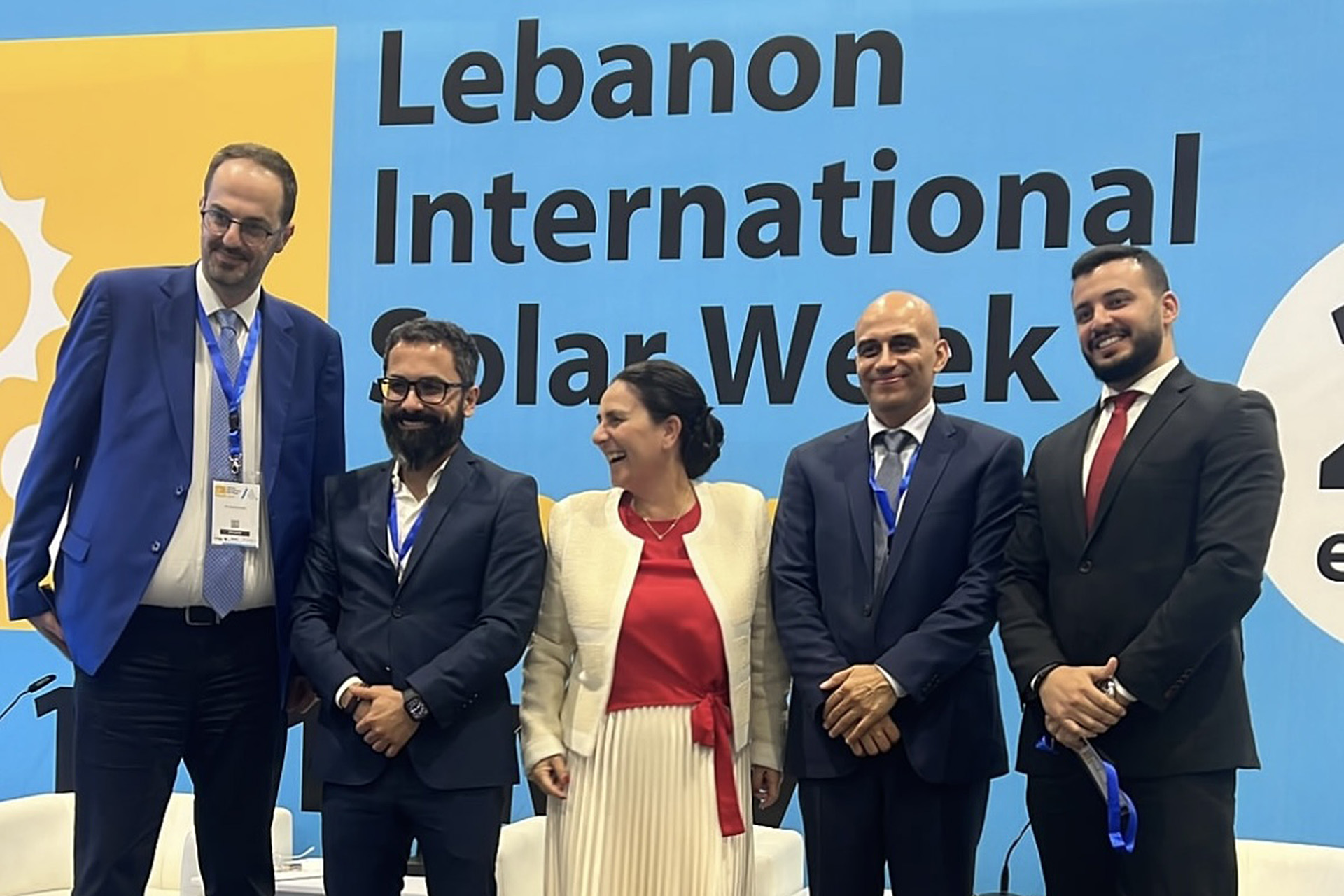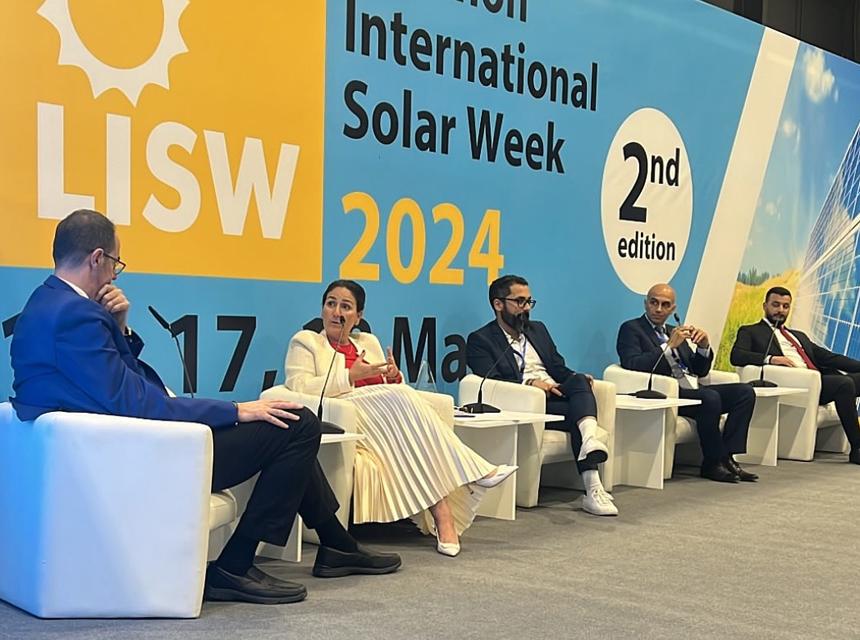Lebanon Unpacking the Potential of Green Hydrogen, Highlights from LISW 2024
The Lebanon International Solar Week 2024 (LISW 2024), held from May 16 to May 18 at the Seaside Arena in Beirut, served as a critical platform for advancing sustainable energy in the region. Among the event’s highlights was a panel discussion on the transformative potential of green hydrogen, featuring key industry experts. The panel, moderated by Dr. Joseph Al Assad, brought together leading figures in the energy sector to discuss green hydrogen's role in the global energy transition, amongst them Toufic Rizkallah, Technical Manager and Network Coordinator of the MED-GEM Network.
Dr. Joseph Al Assad, Dean of the School of Engineering at USEK University, Vice-Chair of the Lebanon Committee of WEC, with advisory roles the Lebanese Ministry of Energy and Water and also MED-GEM’s Senior short-term expert conducting a study for Lebanon, provided a robust framework for the discussion. His high level of expertise ensured a comprehensive exploration of green hydrogen’s technical feasibility, economic implications, and strategic importance.

Key Contributions from Industry Leaders
Chadi Maatouk, an expert in climate and renewable finance, emphasized the urgent need for green hydrogen to replace fossil fuels. He highlighted how green hydrogen, produced via electrolysis using renewable energy, can significantly reduce carbon emissions. He also discussed the integration of green hydrogen with Combined Heat and Power (CHP) technology to enhance energy efficiency and reduce costs.
Waleed Al Hallaj, Head of Business Development at Amarenco, shared insights from his extensive experience in the green hydrogen sector. He outlined the challenges of developing green hydrogen projects, such as infrastructure and regulatory hurdles, and stressed Lebanon’s potential to become a competitive player in the green hydrogen market, promising substantial economic benefits and energy security.
Toufic Rizkallah, Technical Manager and Network Coordinator of the MED-GEM Network, introduced the European Union-funded initiative aimed at promoting green electrons and molecules in the Southern Mediterranean, running from January 2023 to December 2026. He emphasized the project's importance for Lebanon, highlighting its role in developing a national GH2 roadmap. This includes analyzing Lebanon’s potential in production, local use, and export of green hydrogen, as well as establishing a regulatory framework to support these developments. The technological and industrial components of MED-GEM, notably through the Industry Advisory Board (IAB), comprising leading industrial stakeholders and EU industry associations helps to identify industry trends, recommend policy measures, and foster collaboration for large-scale deployment of green hydrogen technologies. Reflecting on the inaugural IAB meeting in Brussels, he shared insights into priority areas such as local value creation, job skills, and infrastructure. Looking forward, he outlined future MED-GEM activities, including hackathons to address national green hydrogen challenges and a pilot GH2 certification project to ensure compliance with European regulations for renewable hydrogen imports.
Joumana Hosri, CEO of Sacotel Znshine Middle East, discussed the strategic implications of green hydrogen for the solar industry. She highlighted how green hydrogen could complement solar energy, creating a resilient and sustainable energy system. She also noted the competitive landscape of hydrogen equipment manufacturing and the potential for economic diversification in oil-based economies through green hydrogen.
A Vision for the Future of Energy in Lebanon
The panel concluded with a consensus on the need for continued investment, innovation, and international cooperation to harness the full potential of green hydrogen. Dr. Al Assad summarized the discussions, emphasizing that while the journey towards a sustainable energy future is complex, the collective expertise and commitment of industry leaders can pave the way for a cleaner, greener world.

